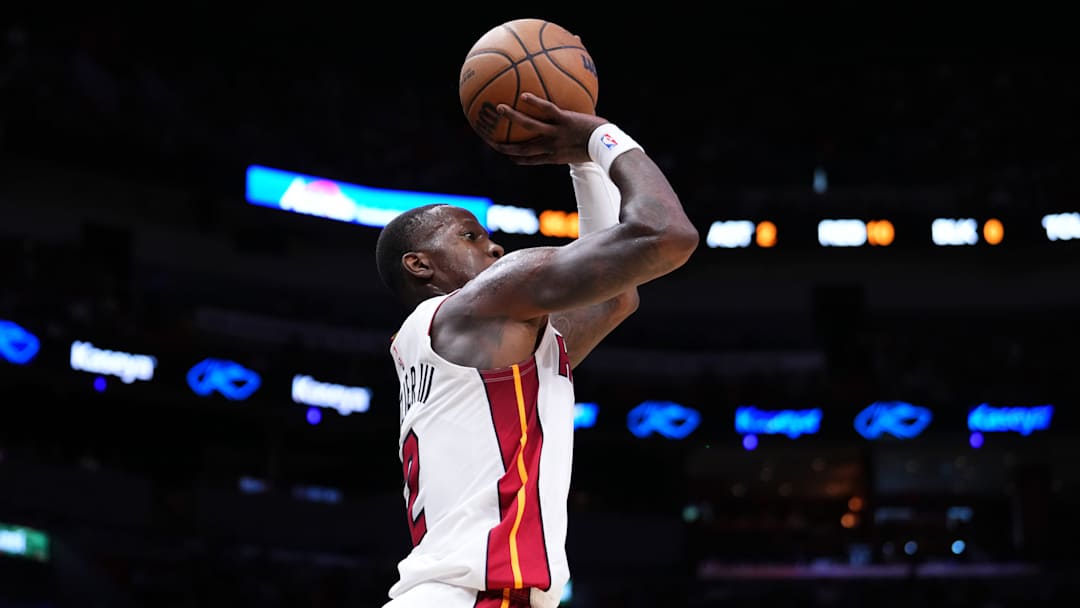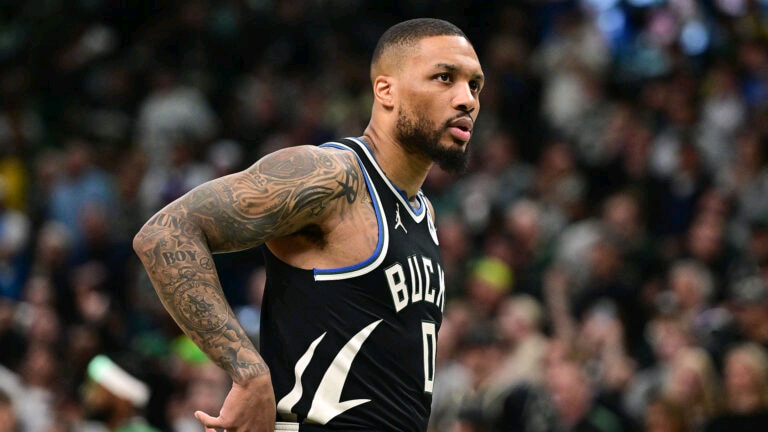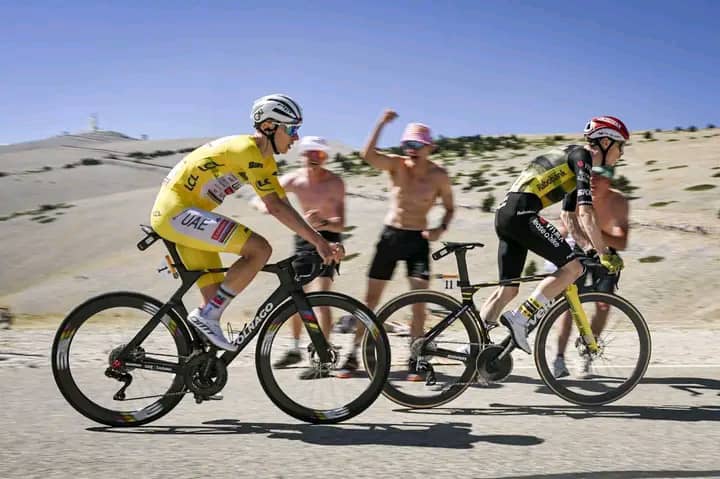The Miami Heat are known for making aggressive moves to stay competitive, but their recent acquisition of Terry Rozier is already raising questions. While Rozier brings notable skill and energy to the floor, early performance data and gameplay trends suggest that he may not be the best fit for Miami’s needs. Let’s dive into the initial results of the Rozier trade, examining why he might be falling short of expectations and what this means for the Heat moving forward.
Decline in Scoring Efficiency and Production
When evaluating Rozier’s impact, it’s essential to consider how his numbers have changed since joining the Heat. With the Charlotte Hornets, Rozier was a high-impact scorer, regularly putting up over 20 points per game. However, his scoring efficiency with Miami has dropped, especially from three-point range, an area where he was expected to help the Heat stretch the floor. His shooting percentages have fallen below his career averages, limiting his effectiveness and making him less of a threat on offense.
This decline is a concern because Miami, already challenged by spacing issues last season, was counting on Rozier’s outside shooting to spread the court for stars like Jimmy Butler and Bam Adebayo. Instead, his inconsistency has allowed defenders to clog the paint, disrupting Miami’s offensive flow and making it harder for the team to create quality scoring opportunities.
Defensive Mismatches and System Fit
Miami’s defensive identity has long been a cornerstone of their success, favoring players who are tough, versatile, and committed on defense. Rozier, though a solid individual defender, lacks the physical size and defensive versatility that Miami generally seeks in its backcourt players. Standing at 6’1″, Rozier has struggled against bigger opponents, creating mismatches that opposing teams are quick to exploit.
Rozier’s style also leans more heavily on offense than defense, which has presented challenges within Miami’s defense-focused system. Miami’s approach requires a high level of communication and quick, adaptable switching. Rozier’s adaptation to this system has been slow, and the Heat’s defensive efficiency has notably dipped since his arrival. His defensive struggles place additional pressure on Adebayo to cover gaps, increasing his foul risk and disrupting the team’s defensive cohesion.
Ball-Dominant Play and Impact on Offensive Flow
Another pressing issue with Rozier’s role on the Heat is his tendency to play a more isolation-heavy, ball-dominant style. Rozier thrives when creating his own shots off the dribble, but this can disrupt Miami’s pass-oriented, movement-heavy offense. Players are expected to make fast, unselfish decisions within Miami’s system, and Rozier’s frequent ball-stopping tendencies have often slowed down the team’s rhythm and made their plays easier to defend.
The issue is especially evident when Rozier is on the floor with Butler, Miami’s primary playmaker. Both players are most effective with the ball in hand, but Rozier’s presence has pushed Butler into more off-ball situations. This change has affected Butler’s offensive efficiency, as he’s generally better at initiating plays than waiting to receive the ball. Miami’s offense has had difficulty maintaining a consistent flow with Rozier and Butler together, underscoring a potential stylistic mismatch.
Rozier’s assist-to-turnover ratio also raises concerns. While he’s more of a scorer than a facilitator, Miami has traditionally valued guards who can create opportunities for others. Rozier’s playmaking has been limited, and his relatively high turnover rate has hurt Miami in tight game situations where ball security and precision are crucial.
Financial Constraints and Limited Flexibility
One of the lesser-discussed but critical aspects of the Rozier trade is the financial commitment Miami took on by acquiring him. Rozier’s substantial salary, which extends over several seasons, restricts Miami’s flexibility for roster adjustments in the future. With the Heat already close to the luxury tax, taking on Rozier’s contract complicates their ability to pursue additional talent in free agency or make trades for more fitting players.
Given Miami’s reputation for seeking impactful players to boost their chances at a title, this added financial limitation could be a setback. If Rozier doesn’t work out as hoped, his contract could become a difficult asset to move, affecting Miami’s ability to adapt their roster over the coming years.
Locker Room Fit and Chemistry
While Rozier has a strong work ethic and a reputation as a confident player, there are signs that his style and personality might not seamlessly blend with Miami’s tightly-knit, disciplined locker room culture. Miami emphasizes team-first attitudes, unselfish play, and adherence to their established system, elements that Butler and Adebayo are particularly protective of.
Rozier’s bold shot selection and play style may not align with these values, potentially creating friction. Early reports indicate that there have already been minor disagreements between Rozier and the coaching staff over his shot choices and defensive responsibilities. While he appears willing to make adjustments, the lack of natural cohesion between Rozier and the team’s leaders could affect Miami’s overall chemistry as the season progresses.
What’s Next? Evaluating Potential Adjustments
If Rozier’s struggles continue, the Heat might consider some adjustments ahead of the trade deadline. Though the team may hesitate to make another major trade so soon after acquiring Rozier, exploring options could be necessary if he doesn’t start delivering on expectations.
Miami might consider trade scenarios that would package Rozier with other assets to acquire a player better suited to their system. They could look for a pass-first guard or a three-and-D specialist to balance the roster with more reliable defense and shooting. Alternatively, should Rozier manage to improve his efficiency and adapt to Miami’s system, the Heat may decide to retain him and make smaller roster tweaks instead.
Conclusion: A Gamble with Mixed Results
Trading for Terry Rozier was a high-risk, high-reward move that reflects Miami’s willingness to make bold decisions in their pursuit of a championship. However, early data suggests that Rozier may not be the right fit for Miami’s system and needs. His lower shooting efficiency, defensive limitations, and ball-dominant style have raised questions about the trade’s effectiveness.
The Heat’s success this season will largely depend on whether Rozier can find his place within the team’s system. For now, the Rozier trade appears to be a gamble with mixed outcomes, and the Heat’s management will have to evaluate their options carefully. Whether they decide to stand by Rozier or pursue potential trades, Miami has crucial decisions ahead to remain competitive in a highly competitive Eastern Conference.



